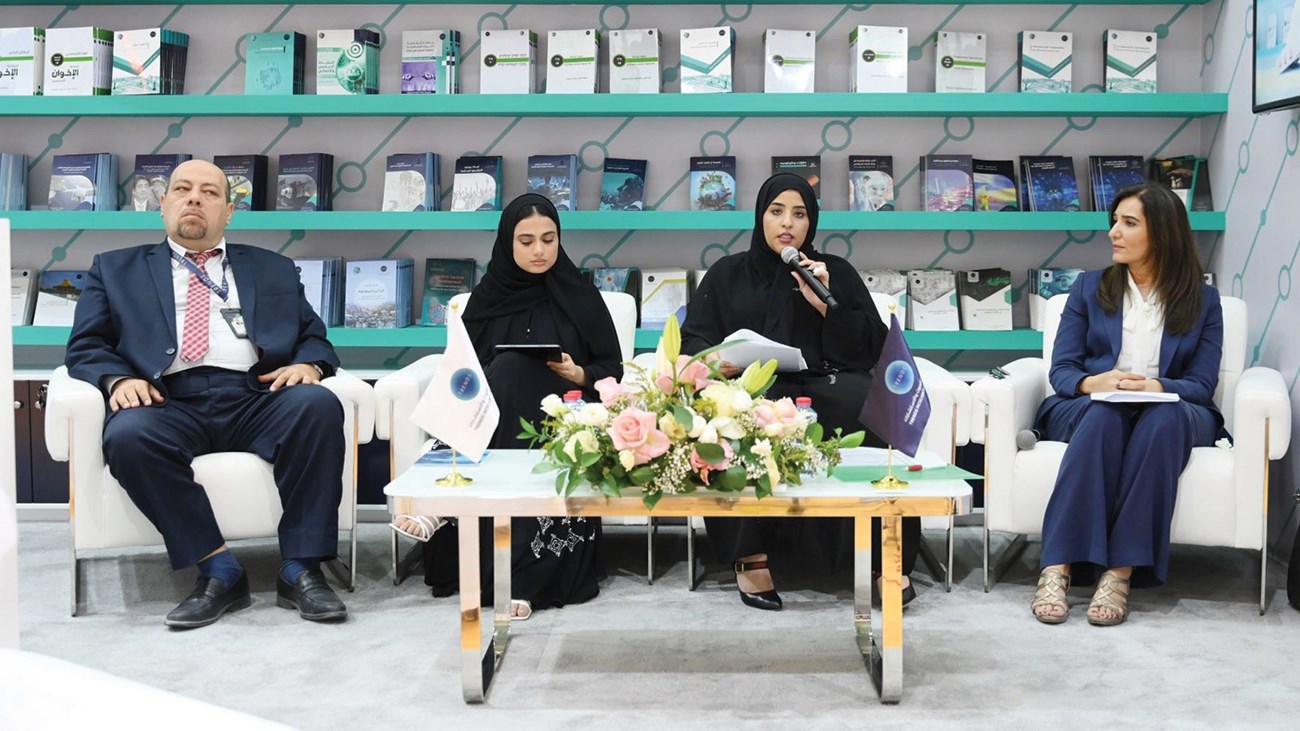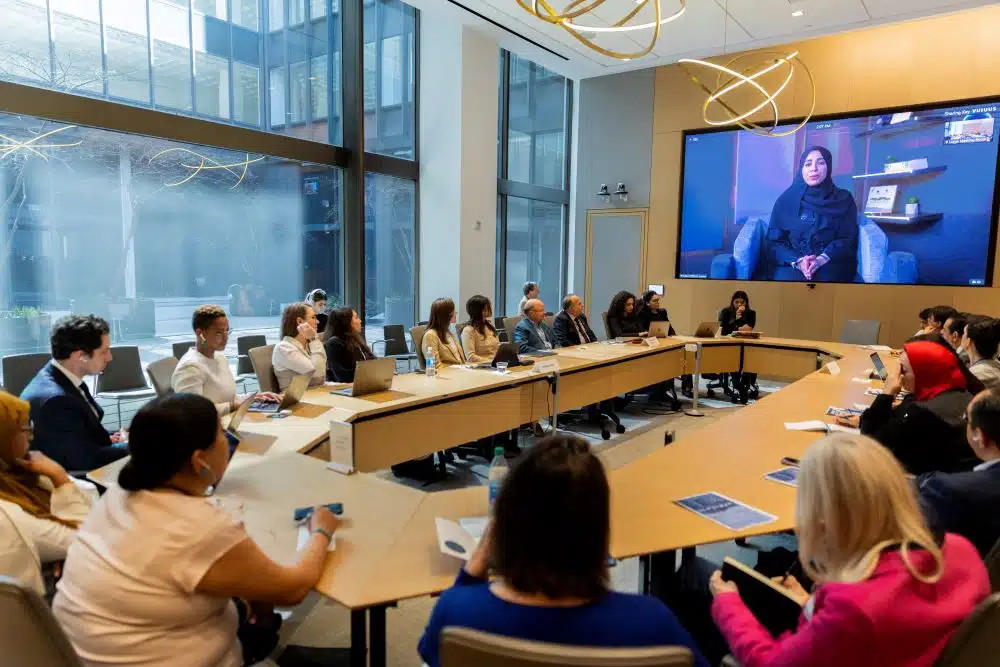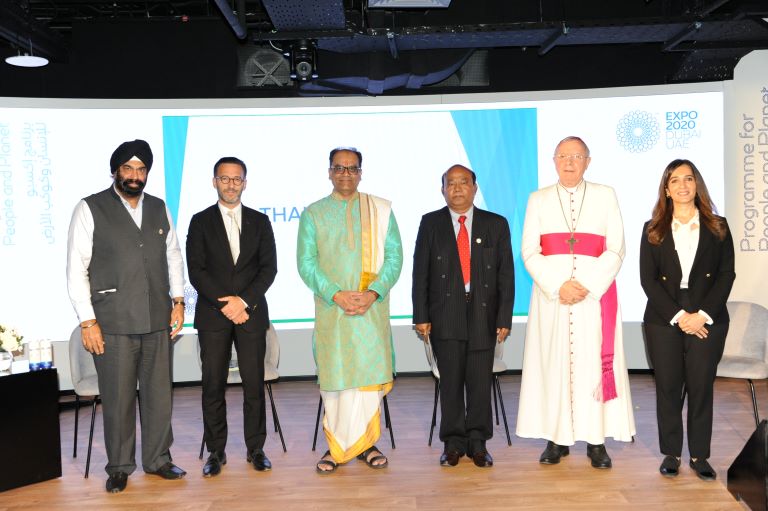- 13 March, 2023
- New York, United States of America
Seminar on Values of Coexistence & Equality
Representatives of the Bahá'ís in the United Arab Emirates participated in and assisted with the organization of a seminar in Arabic on "The Role of Equality and Coexistence in Promoting Social Prosperity in a World Driven by Innovation and Digital Transformation" that was hosted by The Bahá'í International Community at their offices at the United Nations in New York. Participants included delegates from Bahrain, Oman and the Bahá'í International Community's representative from the Cairo office.
The seminar which was held concurrently with the 67th session of the United Nations Commission on the Status of Women (CSW67) from 6th to 17th March 2023, at the United Nations headquarters was attended by more than a hundred participants (some virtually) from different parts of the world. This session, the largest annual gathering at the United Nations, focused on gender equality and women's empowerment, emphasized innovation, technological change, and education in the digital age to advance efforts to bridge gender gaps in these areas.
Dr. Roeia Thabet, representing the Bahá’ís of the United Arab Emirates, presented a comprehensive discussion on gender equality, highlighting its crucial role as a cornerstone for societal advancement in the technological era. She articulated that the growing acknowledgment of equality between men and women marks a significant shift towards a global civilization characterized by justice, coexistence, and prosperity. Dr. Thabet emphasized that promoting equality and enhancing social prosperity are fundamentally linked to acknowledging human diversity as a source of strength and a critical component of any progressive society. Dr. Thabet highlighted that promoting values of equality and enriching societal prosperity is rooted in a collective understanding that human diversity is a source of enrichment and a fundamental pillar for any society that continues to evolve and progress. She pointed out that "progress in achieving gender equality across all aspects of society serves as a true measure of success for any program aimed at social development." To stimulate deeper discussion, Dr. Thabet posed several thought-provoking questions, such as, "What beliefs, standards, and practices will societies need to adopt in the coming years to fully and meaningfully establish gender equality—not out of sympathy or self-sacrifice, but from a genuine belief that women's contributions are essential for societal progress?" Dr. Thabet used the metaphor of humanity as a bird with two wings, with one wing representing women and the other men, to illustrate that both genders must be equally strong and capable for humanity to soar. She posited that the advancement of women is not just beneficial but essential for the collective advancement of society. This perspective invites a deeper reflection on the structural changes necessary to foster an equitable environment where both men and women can thrive equally.
The Bahá'í International Community’s participation focuses on how essential concepts and values related to human nature—such as integrity, commitment to truth, and a sense of responsibility—can be increasingly reflected in the development and use of digital technologies. Additionally, it underscores the importance of local communities engaging in consultative processes to examine the impacts of these technologies within their specific local contexts, ensuring that technological advancements serve the greater good and uphold ethical standards.



